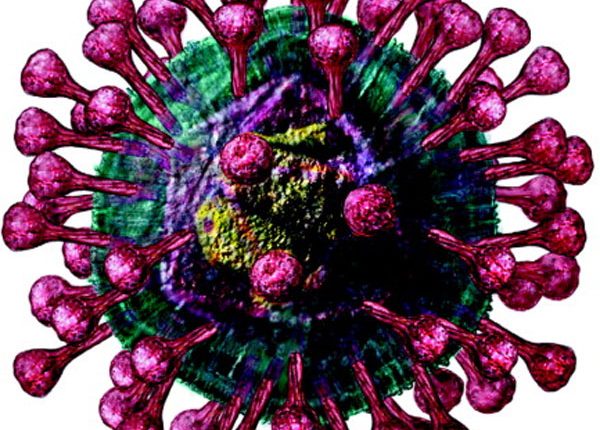Health Ministry reviews preparations under “India COVID-19 Emergency Response and Health Systems Preparedness Package: Phase II” with States/UTs
Stress on Effective Advance Preparations for Ensuring Robust Health Infrastructure and Efficient Clinical Management of COVID
New Delhi/ Kalinga Voice
Union Health Ministry reviewed preparations under the recently approved, Rs. 23,123 Cr. “India COVID-19 Emergency Response and Health Systems Preparedness Package: Phase II” with Health Secretaries and senior officials of all States/UTs, through a video conference (VC) today.
Union Cabinet chaired by Hon’ble Prime Minister approved the new scheme “India COVID-19 Emergency Response and Health Systems Preparedness Project: Phase-II” amounting to Rs. 23,123 Crore for FY 2021-22 on 8th July 2021. This will be implemented from 01 July 2021 to 31 March 2022.
Phase-II of the Emergency COVID19 Response Package (ECRP) has Central Sector (CS) and Centrally Sponsored Schemes (CSS) components.
This scheme aims to accelerate health system preparedness for immediate responsiveness for early prevention, detection and management with sharp focus on health infrastructure development including Paediatric care and with measurable outcomes. This will help in strengthening decentralized public health actions and public health facilities in rural, peri-urban and tribal areas.
During the review meeting, States/UTs were guided on policies and guidelines from Union Health Ministry on different aspects of COVID management which would help the states/UTs in strengthening their healthcare infrastructure to streamline COVID-19 response. States/UTs were requested to send their expenditure proposals at the earliest to enable expeditious approval and sanctioning from the Union Government.
Focus on the following was highlighted during the meeting:
- Need for ramping up test, track, treat & isolate strategy
- Requirement for scaling up testing capacity, additional beds including for Paediatric care and makeshift hospitals in sub-district levels
- Ensuring availability of critical drugs, testing kits and PPEs
- Enhancing Oxygen availability and strengthen home and village/ community isolation centres/ COVID care centres
- Sustaining and enhancing skilled medical and para-medical HR in line with the new guidelines issued by the Union Health Ministry in consultation with National Medical Commission (NMC) and Indian Nursing Council (INC)
The following objectives of ECRP: Phase-II were reiterated at the review meeting:
- Support the States to establish dedicated Paediatric Care Unit in all 736 districts of the country for responding to the needs of Paediatric COVID-19 management
- Support the States to establish Paediatric Centre of Excellence in each State/UT (either in State Medical Colleges or State Hospitals or Central Hospitals such as AIIMS, Institute of National Importance, etc) for providing Tele-ICU services, mentoring and technical hand-holding to these District Paediatric units.
- Increase the availability of ICU beds including 20% Paediatric ICU beds as per evolving needs
- Support to States to have 1050 Liquid Medical Oxygen (LMO) Storage Tanks along with Medical Gas Pipeline System (MGPS) (at least one per District) to augment the availability of medical Oxygen in public healthcare system.
- Strengthen Tele-consultation Platform to provide up to 5 lakhs Tele-consultation services per day, duly augmenting the availability of Spokes and Hubs
- Support the States in implementation of Hospital Management Information System (HMIS) in all the District Hospitals, duly strengthening the national architecture.
- Increase access to ambulance services to eliminate delays in transport and referral of COVID-19 patients Enhance testing capacity and corresponding supportive diagnostics at the public healthcare facilities, closer to the public
- Support the States to utilize the UG and PG Interns, Final Year MBBS, BSc and GNM Nursing students for effective management
States/UTs were advised to conduct a quick gap analysis for various infrastructure components under ECRP-II including their IT infrastructure readiness. The hub and spoke model for Tele-consultation services may to be improved including for the services at the COVID Care Centres, through District level Hubs. The Final year MBBS students, UG Interns and PG residents may be utilized under the supervision of the faculty as per the National Medical Commission Guidelines for providing services of mild COVID management through Tele-consultation and similarly, final Nursing graduates (BSc and GNM) may be utilized for full-time COVID nursing duties at government facilities under the supervision of Senior Faculty as per the Indian Nursing Council Guidelines and support of remuneration / incentives to these Human Resources for Health under the ECRP-II may be leveraged by the States effectively in the times of need. All facilities in the District (COVID/Non-COVID), Health and Wellness Centers (HWCs), eSanjeevaniOPD, Common Service Centers (CSCs) and other healthcare facilities like Sub-Centres (SCs), Primary Health Centres (PHCs), Community Health Centres (CHCs) etc., are required to be connected with District hospitals as spoke.
It was also pointed out that procurement of drugs for effective COVID management is an essential component of ECRP-II; guidelines on procurement and buffer stocks have been already shared with the states which may be adopted for this purpose. Guidance can be tweaked to local needs and states must come up with their own assessments based on stocks and costs involved.
Ms. Vandana Gurnani, AS&MD (NHM) and Shri Vikas Sheel, Addl. Secy with senior officers from the Union Health Ministry were present during the meeting

